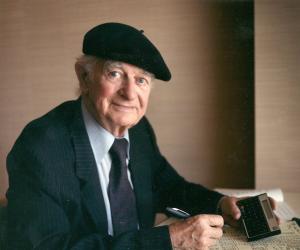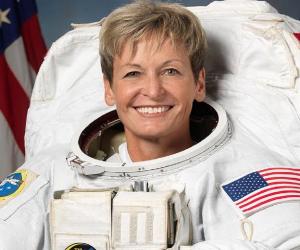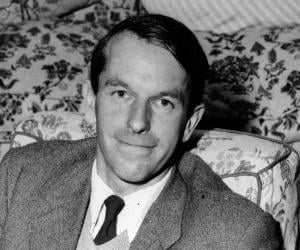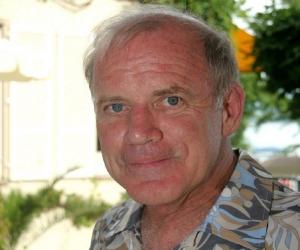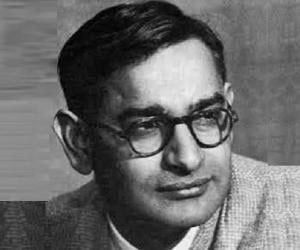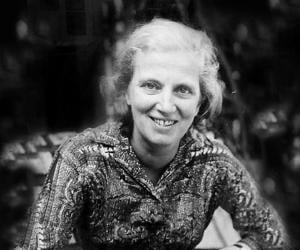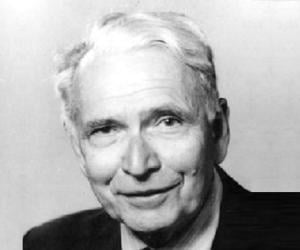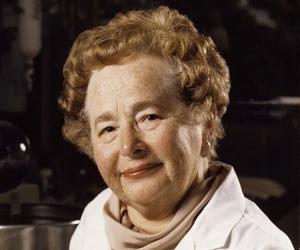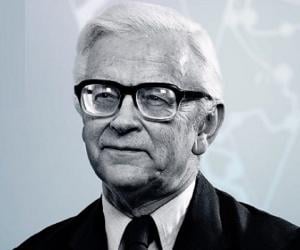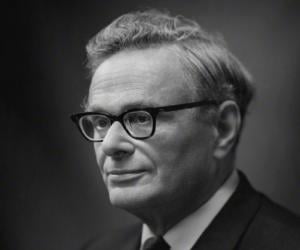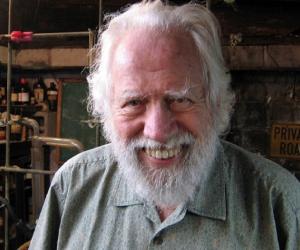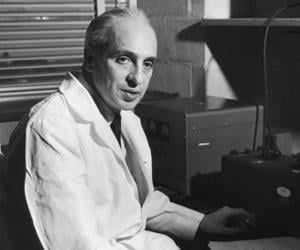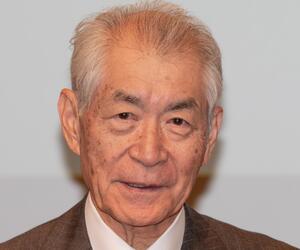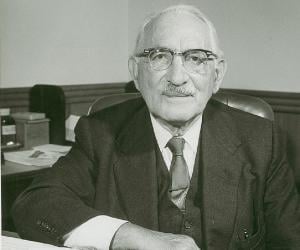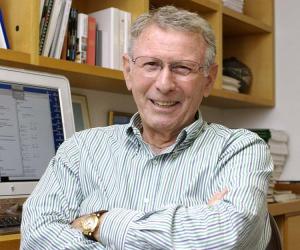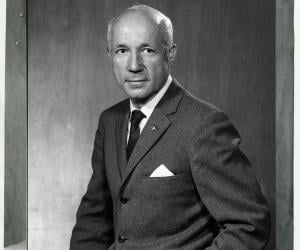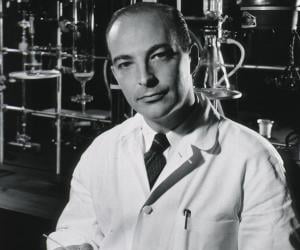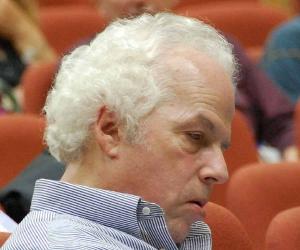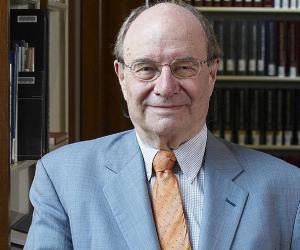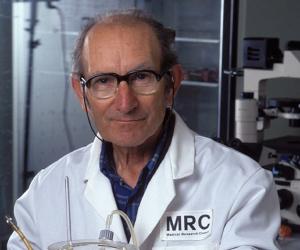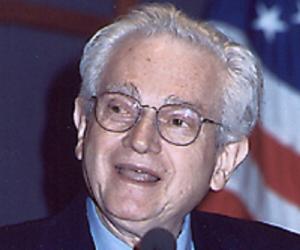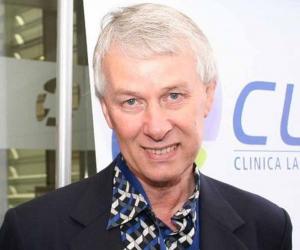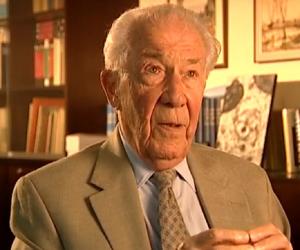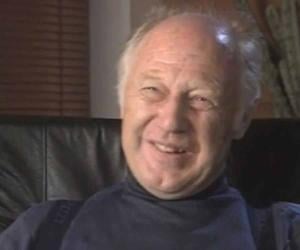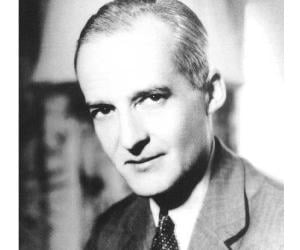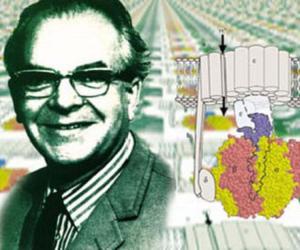Only person to win two unshared Nobel Prizes, Linus Carl Pauling was an American theoretical physical chemist, who received the 1954 Nobel Prize in Chemistry for his work on nature of chemical bond and 1962 Nobel Prize for Peace for his efforts to stop nuclear weapon testing. Also a prolific writer and educator, he has published 1,200 books and papers.
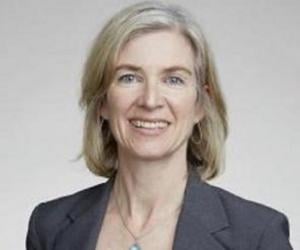
American biochemist Jennifer Doudna of the University of California, Berkeley, who has made fundamental contributions in biochemistry and genetics, is best-known for her pioneering work in CRISPR gene-editing. Doudna and Emmanuelle Charpentier received the 2020 Nobel Prize in Chemistry for developing a method for genome editing through CRISPR, marking them as the only two women to share science Nobel ever.
The first woman to command the International Space Station, NASA astronaut Peggy Whitson was born to farmers and decided to become an astronaut after watching the moon landing on TV. She also boasts of a PhD in biochemistry and has been a researcher and educator of biochemistry and genetic engineering.
Frederick Sanger remains one of only two people to have won the Nobel Prize twice in the same category. The British biochemist is remembered for his ground-breaking work on nucleic acids and the insulin molecule. The son of a Quaker medical missionary, Sanger, too, grew up believing in Quakerism.
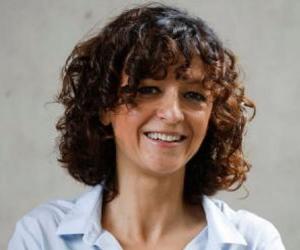
Born into a poor family in British India, Har Gobind Khorana studied on scholarships and later bagged a seat at the University of Liverpool and thus moved to England. The renowned biochemist ended up winning the Nobel Prize for his research on how nucleotides in nucleic acids control protein synthesis.
Dorothy Hodgkin received the 1964 Nobel Prize for mapping the structure of penicillin and Vitamin B12. She is also known for her work on insulin. Beginning her work on structure of an organic compound by using X-ray crystallography as an undergraduate student, she later developed it further and used it to determine the three-dimensional structure of complex organic molecules.
Erwin Chargaff was a biochemist and writer who worked at the Columbia University medical school as a professor of biochemistry. He is credited with discovering the Chargaff's rules, which played an important role in the discovery of the DNA's double helix structure. Also a prolific writer, Erwin Chargaff authored several books, including an autobiography.
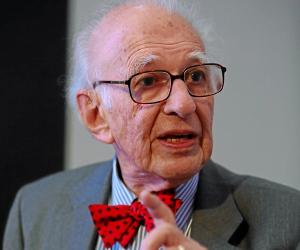
Nobel Prize-winning neurobiologist Eric Kandel is known for his research on the role of synapses in memory and learning. An Austrian Jew, he left his country with his family and moved to the U.S. in the wake of anti-Semitism. A doctor, specializing in psychiatry, he later taught at Columbia University.
The daughter of Jewish immigrants in New York, Gertrude B. Elion excelled in chemistry at Hunter College, where she studied for free, but was initially unable to find a job due to gender bias. The renowned biochemist and pharmacologist later won a Nobel and became a pioneer in medical research.
Nobel Prize-winning biochemist John Kendrew revolutionized science with his 3-D model of the muscle protein myoglobin. The Cambridge alumnus later co-founded the European Molecular Biology Organization and had been the editor-in-chief of the Journal of Molecular Biology. He had also worked on operational research for the Royal Air Force.
Born to an ENT surgeon in Germany, Hans Adolf Krebs followed in his father’s footsteps and studied medicine. After fleeing Nazi Germany, he went to England, where he joined the University of Cambridge as a researcher. The Nobel Prize-winning scientist is remembered for his groundbreaking discovery of cellular respiration.
A pioneer of psychedelic drug synthesis, Alexander Shulgin came to be known as The Godfather of Ecstasy, for reinventing the drug MDMA, or ecstasy, for medical use. The Harvard drop-out, who later studied psychiatry and pharmacology, would often experiment his newly invented drugs on himself, his wife, and his friends.
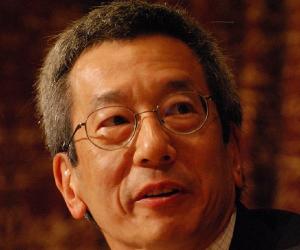
Co-recipient of the 2008 Nobel Prize for Chemistry for discovery and development of the green fluorescent protein, Roger Yonchien Tsien began working on the subject in collaboration with Osamu Shimomura and Martin Chalfie while serving as professor of chemistry and biochemistry at University of California. Also a pioneer of calcium imaging, he is known for developing various dyes including Fura-2.
Nobel Prize-winning Spanish biochemist Severo Ochoa is remembered for his discovery of the enzyme polynucleotide phosphorylase and his subsequent success in synthesizing RNA. His research took him to top institutes such as the universities of Oxford and Heidelberg. He had also taught at the New York University.
Nobel Prize-winning Japanese immunologist Tasuku Honjo is known identifying the programmed cell death protein 1 and for revolutionizing cancer immunotherapy. Initially part of the University of Tokyo's faculty of medicine, he later taught genetics, immunology, and medical chemistry at several institutes. He was a foreign associate of the U.S. National Academy of Sciences.
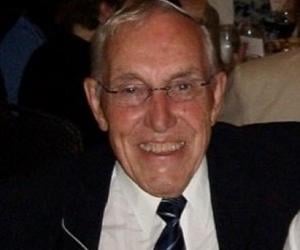
A legend of anatomy, Keith L. Moore was also one of the founders of the American Association of Clinical Anatomists. The author of books such as Before We Are Born, Moore was also known for his study on the scientific accuracy of statements related to embryology mentioned in the Quran.
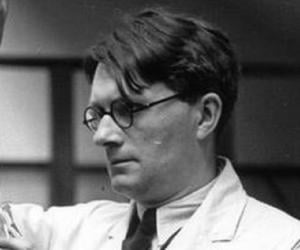
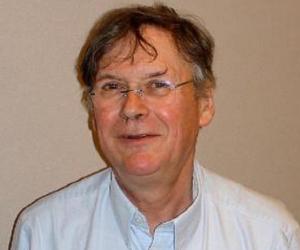
Nobel Prize-winning British biochemist Tim Hunt is best known for his research on cell cycle regulation. He was the first to isolate cyclin, while studying sea urchins. His work helped scientists working on cancer research. He has been knighted for his achievements and has also won the Royal Medal.
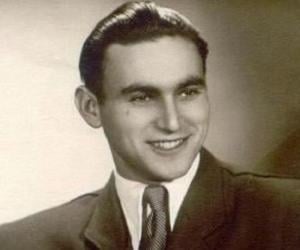
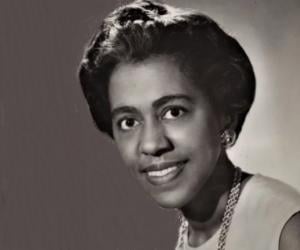
Marie Maynard Daly was the first Black lady to earn a doctoral degree in chemistry in the U.S. She was inspired by her father, who had to drop out of Cornell due to lack of funds. A pioneer of biochemistry, Daly later introduced a scholarship for African-American students at Queens College.
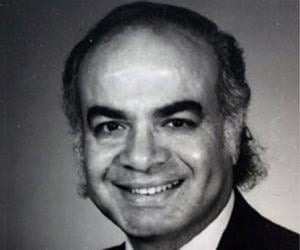
Born in Egypt, Rashad Khalifa later moved to the U.S., where he earned a PhD in biochemistry. Part of the USI and a supporter of the Quranist movement, he was found stabbed multiple times in a mosque in Arizona. It was later revealed that Sunni extremists had killed him.
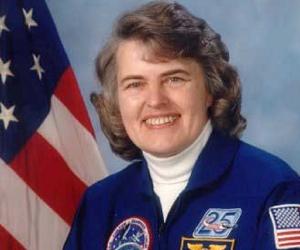
Shannon Lucid once held the record for the longest space stay by any woman and by any American. Born in China, to missionaries, she was imprisoned by the Japanese, along with her parents, as an infant. The family then moved to the U.S., where Lucid studied at the University of Oklahoma.
Nobel Prize-winning biochemist Paul Berg is best known for his research on recombinant DNA techniques. The Stanford professor was born to Russian Jewish immigrants in New York and is a Penn State alumnus. He has also won the National Medal of Science, among other awards.
The son of Russian Jewish immigrants, Melvin Calvin earned scholarships to fund his studies and eventually earned a PhD in chemistry from the University of Minnesota. The University of California, Berkeley professor later won a Nobel for co-discovering the Calvin cycle, which explained the chemical pathways of photosynthesis.
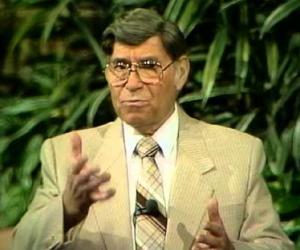
Apart from being a renowned biochemist, Duane Gish was also a World War II veteran and a prominent Creationist. He taught at Cornell and penned iconic books such as Evolution: The Fossils Say No! He was also known for his fiery debates and had headed the Institute for Creation Research.
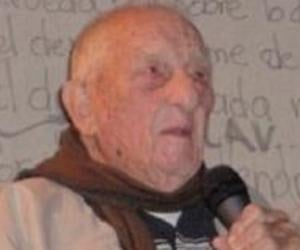
Alberto Granado was an Argentine-Cuban doctor, biochemist, scientist, and writer. He is credited with establishing the University of Santiago de Cuba School of Medicine. Alberto Granado was also a traveling companion and friend of Che Guevara. His memoir about the 1952 motorcycle tour with Che inspired the 2004 biopic, The Motorcycle Diaries.
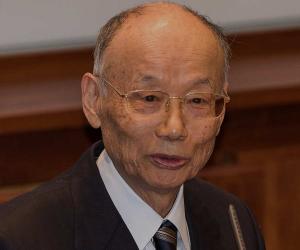
Japanese biochemist Satoshi Ōmura won the Nobel Prize for contributing to the discovery of avermectin and ivermectin, and thus helping in developing treatments for roundworm parasite infections. He has also been associated with the faculty of the Kitasato University and the Wesleyan University.
Nobel Prize-winning biochemist and doctor Arthur Kornberg is best remembered for his research on DNA synthesis. Born to Jewish immigrants in New York, Kornberg assisted his father at his hardware shop as a child. He had also been a ship doctor for the U.S. Coast Guard.
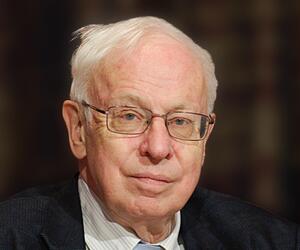
Tomas Lindahl is a Swedish-British scientist who specializes in cancer research. He is best known as the winner of the 2015 Nobel Prize in Chemistry, which he received alongside Turkish chemist Aziz Sancar and American chemist Paul L. Modrich. Over the years, Tomas Lindahl has also been honored with other prestigious awards such as the Royal Medal and Copley Medal.
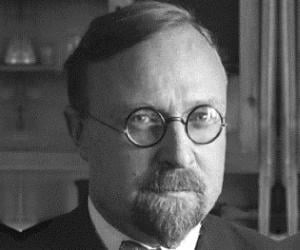
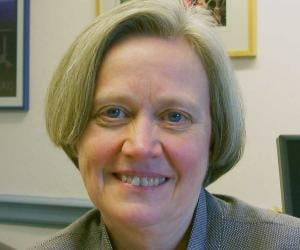
Shirley Marie Tilghman, the nineteenth President of Princeton University, currently the Emeritus Professor of Molecular Biology and Public Affairs, is considered to be one of the most influential female scientists of our time. Although she is no longer involved in active research she is known for her contributions in the fields of molecular genetics, especially in genomic imprinting.
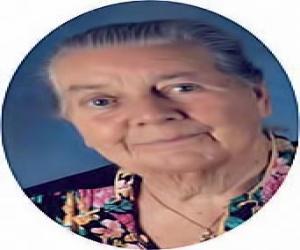
German biochemist and pharmacist Johanna Budwig is best remembered for her anti-cancer diet known as the Budwig diet. Her extensive research on fatty acids helped her create the diet that consists of flaxseed oil, cottage cheese, and low-fat milk. However, there’s no scientific evidence that proves the effectiveness of the diet.
The son of an architect, Stanley B. Prusiner earned the nickname "little Genius" for inventing a bug repellent in school. The Nobel Prize-winning biochemist and neurologist is best known for discovering prions, or proteins that cause diseases, and thus suggesting an explanation for the mad cow disease.
American molecular biologist and Nobel laureate Walter Gilbert pioneered research on the sequence of nucleotide links in DNA and RNA molecules. The Harvard and Cambridge alumnus later taught at Harvard. He also co-established firms dealing with genetic engineering and pharmaceutical research and was part of the Human Genome Project.
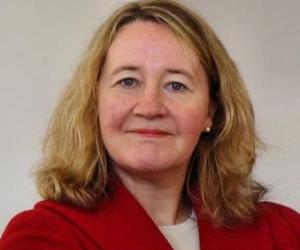
Carol W. Greider is a molecular biologist who discovered the enzyme telomerase in 1984. Her discovery was honored several years later when she received the 2009 Nobel Prize for Physiology or Medicine, along with Blackburn and Jack W. Szostak for their work on telomeres. The trio also shared the Albert Lasker Award for Basic Medical Research for the same work.
Cesar Milstein was an Argentine biochemist renowned for his work in antibody research. He is credited with developing the Hybridoma technology, a method to produce identical antibodies in large numbers, for which he was honored with the prestigious Nobel Prize in Physiology or Medicine in 1984. He also received several other awards, including the Copley Medal in 1989.
American biochemist and Nobel laureate Marshall W. Nirenberg is best known for his research on solving the genetic code. The son of a Jewish shirtmaker father, Nirenberg showed an early interest in biology. He led the National Heart Institute’s genetics department and was associated with the National Institutes of Health.
Molecular biologist Richard J. Roberts is best known for his Nobel Prize-winning research on split genes. The Harvard alumnus had wished to be a detective as a child but changed his mind after being gifted a chemistry set. He was also made a Fellow of the Royal Society and knighted.
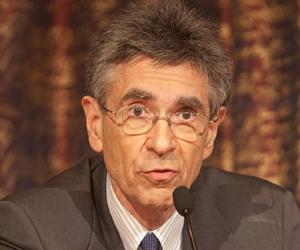
Born into a family of Polish immigrants, Robert Lefkowitz grew up to be a cardiologist and biochemist, and later taught at Duke University. He is best known for his research on the signal-receiving receptor molecules, such as the GPCRs, which eventually won him a Nobel Prize.
Christian de Duve was an English-born Belgian cytologist and biochemist. For his discoveries of two cell organelles, peroxisome and lysosome, he shared the 1974 Nobel Prize in Physiology or Medicine with Albert Claude and George E. Palade. He was the founder of the International Institute of Cellular and Molecular Pathology in Brussels, which was later renamed in his honor.
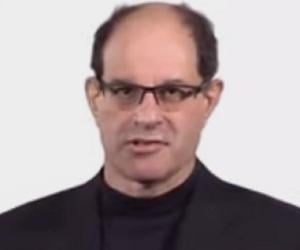
David Julius is an American physiologist best known for winning the prestigious Nobel Prize in Physiology or Medicine in 2021. He won the award alongside Ardem Patapoutian for discovering the receptors for touch and temperature. David Julius is also the recipient of several other awards, such as the Shaw Prize, Gairdner Foundation International Award, and Prince of Asturias Prize.
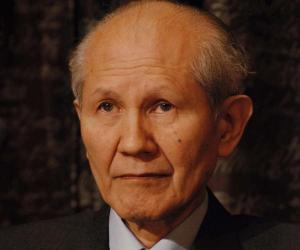
Nobel Prize-winning Japanese organic chemist and marine biologist Osamu Shimomura is remembered for discovering the green fluorescent protein, or GFP. He was also associated with Princeton University and the Marine Biological Laboratory as a researcher and faculty member. He was named to the US National Academy of Sciences, too.
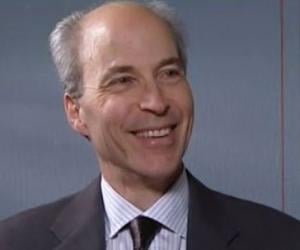
American chemist Roger D. Kornberg studied at Harvard and Stanford and later taught at both these institutes. His research focuses on transcription, or the process of the conversion of DNA into RNA. Both he and his father have won the Nobel Prize, becoming the sixth father-son duo to achieve the feat.
Nobel Prize-winning British-Canadian biochemist Michael Smith is best remembered for his research on site-directed mutagenesis, which has paved the path for further research on topics such as gene therapy and Alzheimer disease. A professor of biotechnology and biochemistry, he later co-founded the biotechnology company ZymoGenetics Inc.
Luis Federico Leloir was an Argentine biochemist and physician whose discovery of metabolic pathways in lactose earned him the prestigious Nobel Prize in Chemistry in 1970. His research into renal hypertension, carbohydrate metabolism, and sugar nucleotides has led to progress in understanding and treating galactosemia. During his career, he won many awards, such as the Legion of Honour.
Peter Mitchell was a British biochemist best known for his discovery of chemiosmosis, for which he was honored with the prestigious Nobel Prize for Chemistry in 1978. Over the course of his career, Peter Mitchell also received other prestigious awards such as the Copley Medal and the Sir Hans Krebs Medal.
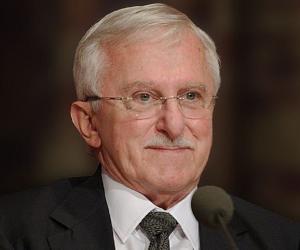
Nobel Prize-winning biochemist and Duke University professor Paul L. Modrich was born to a biology teacher and sports coach father. He studied at both MIT and Stanford and did his postdoctoral research at Harvard. He is best known for his discovery of DNA mismatch repair.
